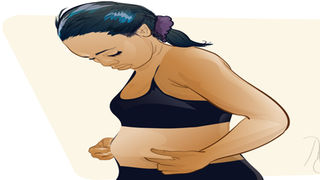
Saturday Magazine
Premium
So many women today hate their bodies and it's killing their sex life
What you need to know:
Using social media does appear to be correlated with body image concerns
- These beauty standards are unattainable to many, and women end up having a distorted view of themselves through unfair comparisons
The one common reason why many women may not be enjoying intimacy today is they are not in love with their bodies. For you to feel sexy, you must first accept, appreciate, and like your body. This, however, does not happen often and many women hate one thing or another about their bodies.
For Cathy, it is the acne on her face. She has done everything to clear the spots to little success. She hates looking at herself in the mirror. It depresses her. She wishes her face was smooth like her friends.
For Mary, it is the size of her breasts. She feels they are too big.
"They are like sacks of potatoes hanging on a stick!" she figuratively describes them. She wishes she could afford plastic surgery to reduce them. She has tried tight bras but they only worsen her look. Mary simply hates her body.
Yet, for other women, it is the size of their tummies. Despite, their endless fixes to clinch their tummy, all efforts seem futile.
"I do twenty sit-ups every morning and evening to deflate this pot," says Joyce, "but the more I do it the more it protrudes."
Jane uses a cosset around her tummy with the hope that it will flatten her love handles. She has done this over the last eight months but nothing seems to change. She just hates the shape and size of her tummy and wishes she could exchange it for her sister's hourglass shape. Many times, she has been asked if she was pregnant!
From the hate of their scars, nails, hair, or general body shape, many women's confidence takes a hit for their lack of acceptance.
Unhappiness with one part of the body or another is also called body dysphoria. Body dysphoria issues are expressed in a variety of ways depending on the part of the body affected.
If it is a scar one may go for plastic surgery or may apply make-up to mask it. Although some women put on wigs as a fashion statement, others do it because of body dysphoria, either because they hate the shapes of their heads or the colour and length of their hair. It is the same thing with artificial nails, clipping of eyebrows, and so on. There is always a thin line between doing these things to be on-trend and doing them as a symptom of body dysphoria.
In the bedroom, body dysphoria makes a woman hide her nudity from her man. As such, they can never shower together. She will also not allow the man to massage her. Before undressing, the lady puts off the lights to hide what she hates.
Causes of body dysphoria are multiple. Most often, the woman has grown up in shame, being called names because of her shape or the form of one part of her body. As such she is ashamed of her body.
It may also be what is generally taken as the attributes of beauty. Globally, we have gone through the slim, Caucasian-form, and white skin beauty standards, and currently, we are seeing ideals being propagated through the slim-thick or Insta-model-look beauty trends. These beauty standards are unattainable to many, and women end up having a distorted view of themselves through unfair comparisons.
Using social media does appear to be correlated with body image concerns. A systematic review of 20 papers published in 2016 found that photo-based activities, like scrolling through Instagram or posting pictures of yourself, were a particular problem when it came to negative thoughts about your body.
Research also suggests that "fitspiration" images in particular – which typically feature beautiful people doing exercise, or at least pretending to – might make you harsher on yourself.
Whatever the causes, women with body dysphoria lose self-confidence. It is known that this makes them feel less sexy and reduces intimacy with their partners. In fact, in some cases it makes the woman abhour the man. It is a situation where the hate of one's body makes them hate those intimate to them subconsciously. All these affect sexual intimacy and the relationship.
One way to treat body dysphoria is to do a reality check. This involves you looking at body-positive content, although this still has a downside of objectifying your body. Taking a broader view of yourself e.g. personality, accolades rather than external attributes are known to be more effective.
Where the body dysphoria is deeply rooted, it may be necessary to go for therapy. This is because body dysphoria may result from emotional trauma or abuse early in life that can only be treated with structured therapy. Many cases of deeply rooted body dysphoria manifest as sexual dysfunctions, especially low sex desire, poor lubrication, and even inability to orgasm.
For feedback to the editor email [email protected]





